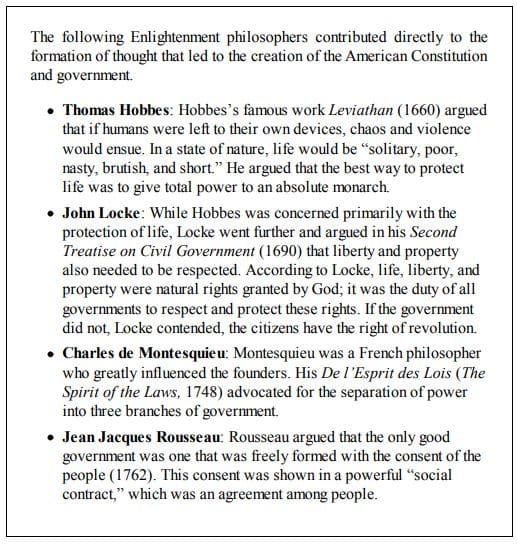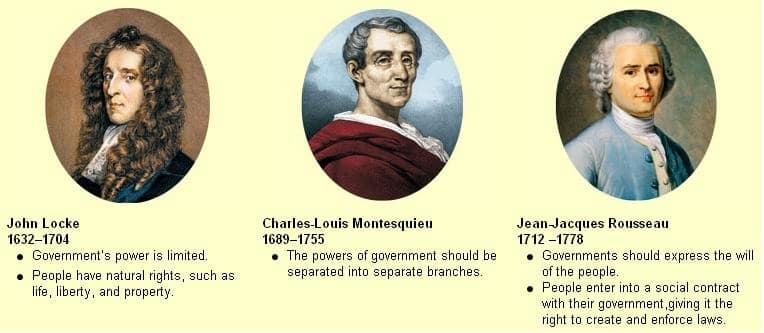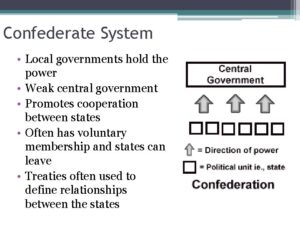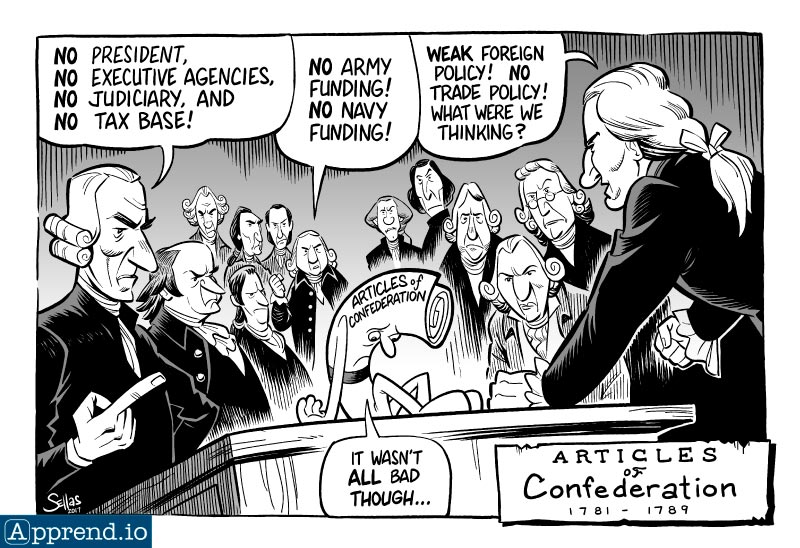The Articles of The Confederation
Enlightenment Philosophers
- The Framers of the Constitution lived in a unique time when new ideas on how government should be organized and run challenged conventional wisdom regarding the roles of people and their governments.
- The Enlightenment was an eighteenth-century philosophical movement that began in Western Europe with
roots in the Scientific Revolution. - The focus was on the use of reason rather than tradition to solve social dilemmas.


The Weakness of the Articles of Confederation
- The first government of the newly born United States of America was formed under the Articles of Confederation, the predecessor to the Constitution.
- This level of government “Confederation” means that there is no or weak central government with full power in the hands of the states.

- These Articles were informally followed from 1776 to 1781 when they were ratified and so named.
- The government under the Articles achieved some notable accomplishments, including the following:
- It won the Revolutionary War against Great Britain.
- It established the Northwest Ordinance, creating methods by which new states would enter the Union.
- It negotiated the treaty that ended the Revolutionary War.
- It set the precedent of federalism, whereby the states and central government shared governing responsibilities.
- However, the Articles of Confederation had insurmountable weaknesses that placed the newly independent states at risk.
- By 1787, trade between the states was in decline, the value of money was dropping, potential threats from foreign enemies were growing, and there was the real threat of social disorder from groups within the country.
- The inability of the state of Massachusetts to effectively deal with Shays’ Rebellion, a six-month rebellion in which more than 1,000 armed farmers attacked a federal arsenal to protest the foreclosure of farms in the western part of the state, was a major concern at the Constitutional Convention.
- The nation’s leaders began to see the necessity of a stronger central government, as Shays’ Rebellion frightened the statesmen and exposed the weakness of the Articles of Confederation.

The federal government under the Articles
- could not draft soldiers
- was completely dependent on the state legislatures for revenue—the federal government was not permitted to tax citizens
- could not pay off the Revolutionary War debt
- could not control interstate trade
- had no Supreme Court to interpret law
- had no executive branch to enforce national law
- had no national currency
- had no control over import and export taxes imposed between states
- needed unanimity to amend the Articles
- needed approval from 9 out of 13 states to pass legislation (69% majority)
- These deficiencies of the Articles of Confederation were the direct causes for calling a convention.
- But amending the articles became so difficult that James Madison did not have difficulty persuading the other delegates that a complete rewrite was necessary.
- The result was the Constitution, and the convention came to be known as the Constitutional Convention.
